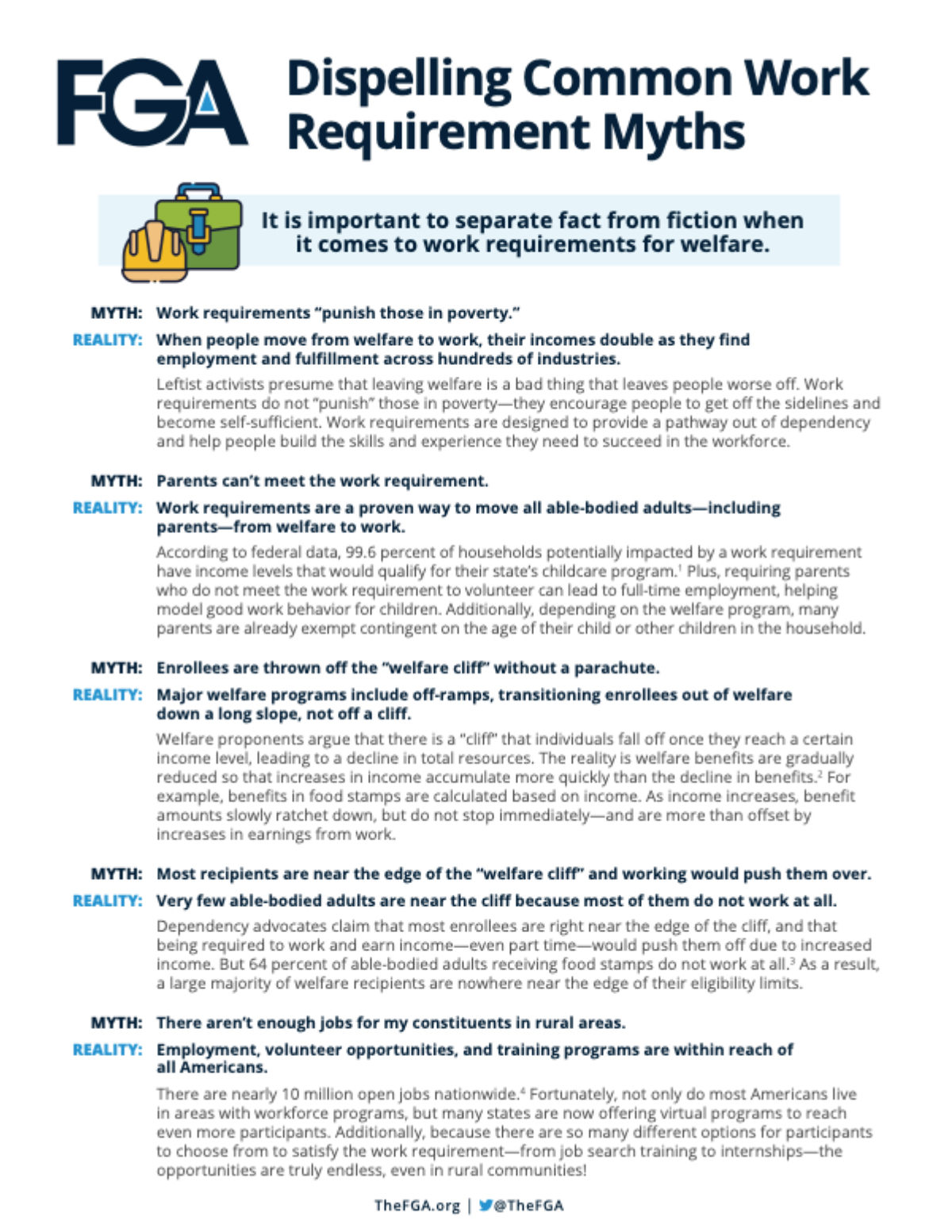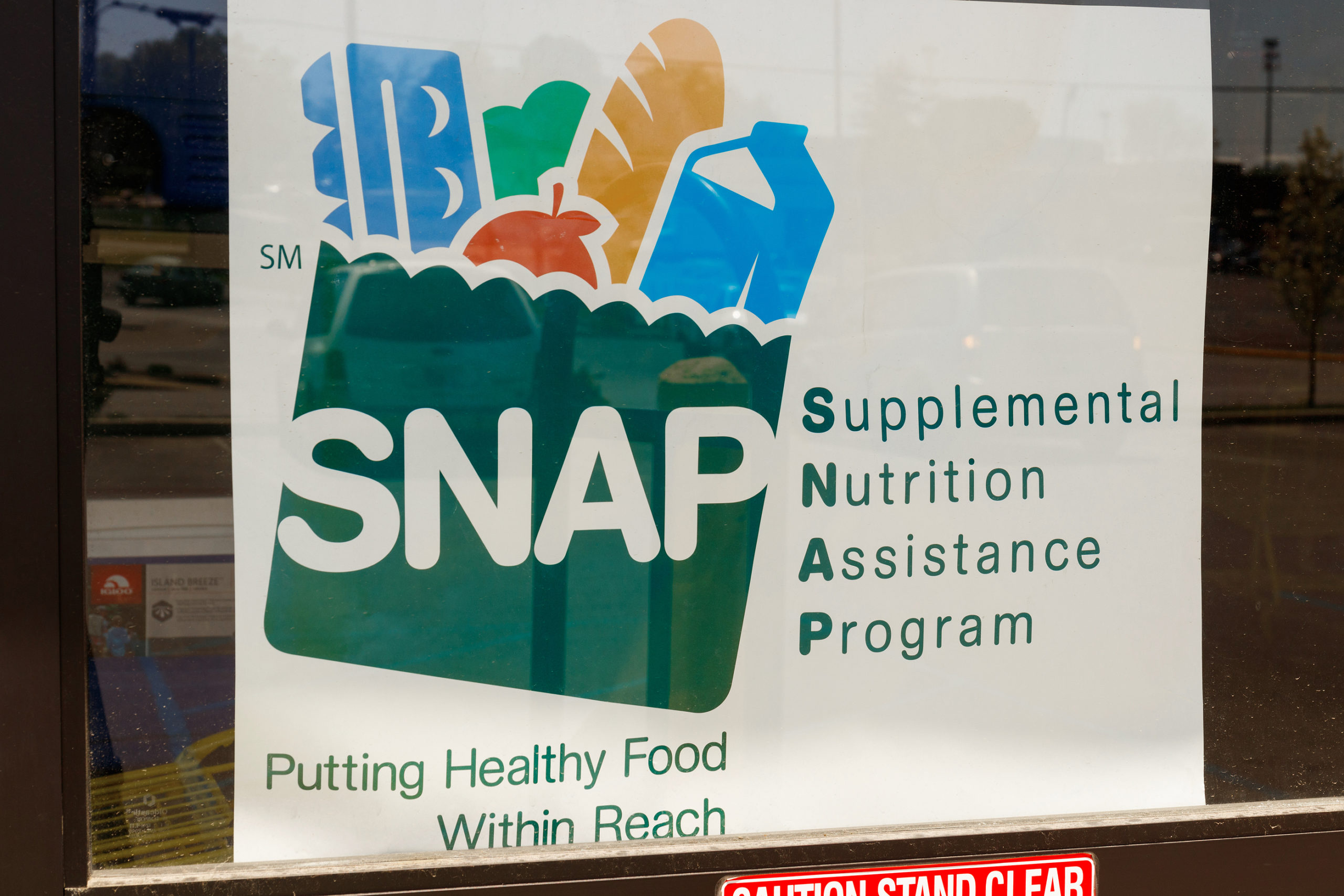Raising Opportunities, Not Dependency
If the American people knew that 84 percent of the spending in the farm bill had nothing to do with farming, they would be outraged and demand reform.
Rightly so! And that’s the reality Congress faces every five years when the farm bill is up for renewal: business as usual or meaningful change—particularly in the food stamp program.
Change would mean saving billions of taxpayer dollars, helping millions of Americans return to work, and reining in bureaucracy. But what are the specific reforms to help get us there?
THE CASE FOR FOOD STAMP REFORM
Four million able-bodied adults without dependents (ABAWDs) are on food stamps, with three-quarters of ABAWDs not working at all.
A major loophole known as Broad-Based Categorical Eligibility (BBCE) has resulted in at least five million people being enrolled in food stamps despite not meeting federal eligibility standards.
The number of food stamp recipients has more than doubled from 2000 to 2022, increasing from 17.1 million to 41.1 million. Benefit costs have exploded from $17 billion to $119 billion.
Instituting a broad work requirement in food stamps would save taxpayers $65 billion over a 10-year period, help individuals move from dependency to self-sufficiency, and ease our nation’s workforce shortage.
Closing the BBCE loophole would save taxpayers nearly $112 billion and protect food stamps for the truly needy.
Latest Research
-
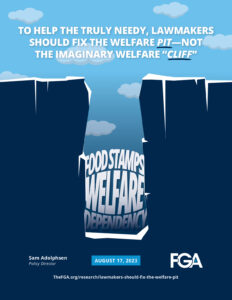 Research
ResearchTo Help The Truly Needy, Lawmakers Should Fix The Welfare Pit—not The Imaginary Welfare “Cliff”
-
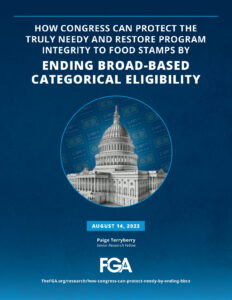 Research
ResearchHow Congress Can Protect the Truly Needy and Restore Program Integrity to Food Stamps by Ending Broad-Based Categorical Eligibility
-
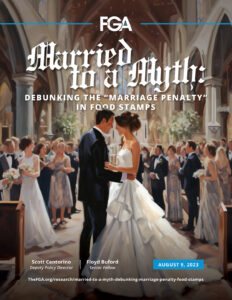 Research
ResearchMarried to a Myth: Debunking the “Marriage Penalty” in Food Stamps
-
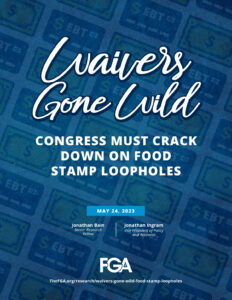 Research
ResearchWaivers Gone Wild: Congress Must Crack Down On Food Stamp Loopholes
FARM BILL RESOURCES
At FGA, we don’t just talk about changing policy—we make it happen.
By partnering with FGA through a gift, you can create more policy change that returns America to a country where entrepreneurship thrives, personal responsibility is rewarded, and paychecks replace welfare checks.



